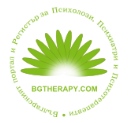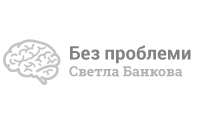Psychosomatics- Syllabus
Objectives
The aim of the course is to give advanced knowledge and skills in the area of psychosomatic psychotherapy; such as body/movement therapy, and to teach a psychotherapy approach. After the completion of the education, the student should be able to carry out treatment based on holistic principles and to be prepared to engage in quality assurance within the area. On completion of the course, the student should :
- be able to account for and apply a biopsychosocial perspective on different health problems
- be able to apply knowledge in communication and interview techniques
- be able to account for and reflect on their psychotherapy approach, i.e. the significance of the interaction in the psychotherapy treatment
- and be able to apply their knowledge in the therapeutic encounter.
- be able to apply a holistic perspective in the assessment process
- be able to independently plan and carry out adequate treatment for patients with psychosomatic and mental problems
- be able to promote behavioral change – have an understanding of the psychotherapist’s part in the treatment process, and ability to reflect on his/her own potentials and limitations in the treatment situation
- have acquired a scientific and critical attitude as well as an ability to reflect on him/herself and be aware of the need for a lifelong learning
Content
The course comprises of psychological, physiological and behavioral medicine models on health and illness including psychosomatic theory: stress theory, neurophysiology and the importance of autonomic regulation
– affect theory, attachment theory, and mentalization
– Central concepts, such as body, being, meaning, and reflection, to facilitate the understanding of body-mind unity
– psychotherapeutic attitude and approach
– examination methods with an emphasis on the body psychotherapy, body history, body image and affect interview
– treatment methods with an emphasis on body awareness exercises based on basic body awareness therapy,
-psychomotor physical therapy (PMF), mindfulness, physical activity and therapeutic touch,
-relaxation methods and techniques.
Teaching methods
– Theoretical and practical teaching. The teaching includes lectures, seminars, practical exercises and literature studies. Patient case discussions in seminars. Own work and case studies.
Syllabus of Psychosomatics
Psychotherapy
- Theoretical base
1.1. Systems theory
1.2. Basic concepts of psychosomatic medicine
1.3. Biosemiotics and placebo response
1.4. Phenomenology and qualitative assessment
1.5. Spirituality and transpersonal psychology
- Basic psychotherapy skills
2.1. Psychotherapist-client relationship / communication
2.2. Systemic interview
2.3. Biopsychosocial reasoning
2.4. Case study / Discussion
- Therapeutic approaches
3.1. Mind-body connection (relaxation, autogenic, imagery, music therapy,
hypnotherapy, therapeutic metaphors, EMDR, EFT)
3.2. Contextual methods ( solution focused, affect regulation,
narrative therapy, mindfulness-based therapies, bioenergy economy)
3.3. Family therapy
- Systemic approaches to common psychosomatic disorders
4.1. Depression
4.2. Anxiety disorders (OCD, panic, PTSD)
4.3. Somatic symptom disorders
4.4. Eating disorders
- Psychosomatic clinical settings
5.1. Psycho-oncology
5.2. Psycho-cardiology
5.3. Psychogastroenterology
5.4. Psychodermatology
5.6. Psychoneurology


